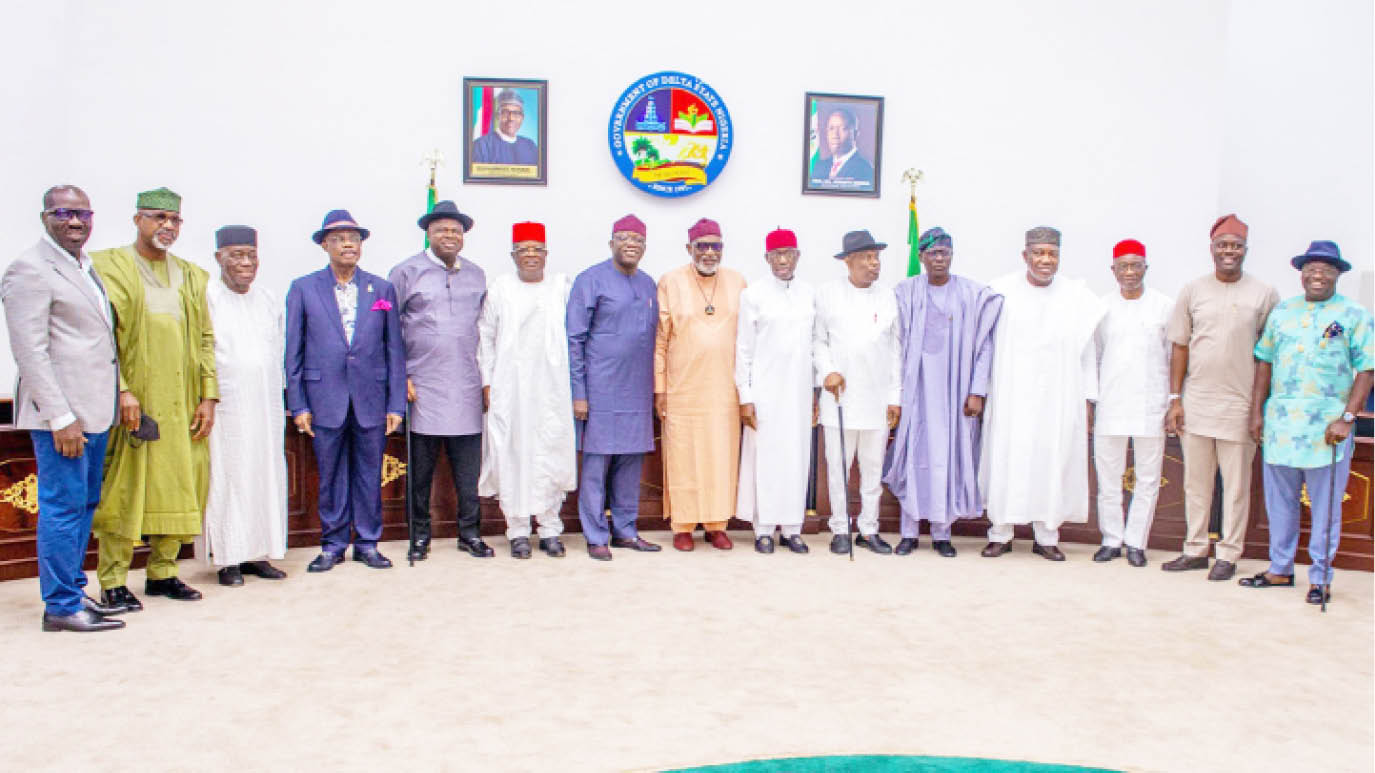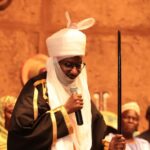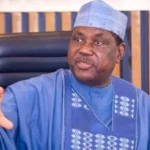Notwithstanding all the hullabaloo being mounted against the position taken by the southern governors in the communiqué they issued at the end of their last meeting, my stand is with them. If our northern politicians are not strategic in building for the North a durable political power scheme within the Nigerian geo-political power equation, then the Northerners have only themselves to blame. Why is it that when the North says a thing it’s nothing, but when the South says it, it becomes an issue?
We all know that the North entered independence in 1960 in an alliance it stroke with the Niger Delta people at self-government in 1959. Then, the NPC under Ahmadu Bello and NDC under Harold Dappa Biriye formed a political alliance to advance the interests of their peoples. At post-independence, the North, along with the Niger Delta, entered another alliance with the NCNC to form the national government of Balewa and Zik. As this was simply an alliance of convenience, it naturally broke down even before the end of that term; but the North’s alliance with the Niger Delta unshakably endured. In place of the alliance with the NCNC, new alliances emerged. The North, still with its loyal traditional ally, entered into an alliance with the newly formed NNDP of the Western regional government to form the NNA; while the NCNC and AG and other minority parties formed the UPGA alliance. It was these two major groups that went into the 1965 national elections from where the former emerged victorious. Then the military, mainly within the background of UPGA, stroke in January 1966. Then came about the Northern-led counter coup of July; then ensued the civil war in which the North fought shoulder to shoulder along with the Niger Deltans to defeat the secessionists.
- Vigilantes to lead fight against bandits in Sokoto – Tambuwal
- FG fails to file extradition charges as Benin court remands Igboho
Then came the transition to civil rule in 1979 at which the North, under NPN, won the federal government elections. There was nothing national in the NPN other than the support it had from the Niger Delta states of old Rivers and Cross River (present Rivers, Bayelsa, Cross River and Akwa Ibom states). Then, as at pre-independence, in the 1965 elections and the civil war, the North benefited from the unwavering support and loyalty of the Niger Delta. Hence, NPN governed the country till another military intervention in 1983. The military, made up of purely Northern officers, led the country and for the most part, made a mess of the nation’s politics and ethos till it was forced out of power in 1999 under national and international outrage.
Then came the transition to democratic politics in 1999 in which former military Head of State, General Olusegun Obasanjo, was elected president. Obasanjo served out his maximum period of two terms after which came the first democratic transition from one to another in 2007. It was during this period that most of our Northern politicians, mainly driven by selfish interests and lack of insight and long term foresight, demonstrated complete ineptitude in political strategy. Instead of the North to view the Obasanjo Presidency as the resolution of the political mess their kith and kins in the military had thrown the country into and therefore consider it as a military solution to a military problem and come up with a Northern democratic political strategy to build a durable power base for the long term benefits of the North and the country, the North interpreted the Obasanjo presidency as purely a “Yoruba/Southern/Christian” presidency. Consequently, instead of the North to support its traditional Niger Delta allies to be elected to national power in the 2007 transitional elections, thereby strengthening the democratic power base of the North in the national democratic power equation, building a good image for the region and help strengthen the nation’s democracy, unity and development, the North insisted that power must return to its region and by implication back to a Hausa-Fulani Muslim. Such Northern sociocultural organisations as ACF, NEF, Northern Union and ambitious members of political parties, etc. took it upon themselves to tell whosoever cared to listen that either power returned to the North or the heavens would fall. Against all-wise counsel that it was in the long term best interest of the North in particular that Northern politicians should lay a good strategic foundation for themselves by supporting their traditional allies in the Niger Delta, thereby reciprocating traditional alliance of one good turn deserves another, our Northern power mongers developed deft ears, insisting that power must return to them.
It was under this unedifying political environment, giving rise to the morbid fear of the outgoing leader of the unthinkable victory of his arch-rival and deputy, that President Obasanjo understandably but unnecessarily opposed the efforts of getting elected a Niger Deltan as president and brought in instead a Northerner in the person of Umaru Yar’adua. Unfortunately, Yar’adua died early and his deputy, Goodluck Jonathan took over as prescribed by the constitution. Still, Northern politicians insisted by the end of the term in 2011 that President Jonathan must not contest and that power must again return to the North. Of course, no rational person listened to them and Jonathan contested and won that election. Thence started the mortal political fight against the North by its traditional allies, the Niger Deltans, now holding the presidency. Buoyed by the desire to finally completely and permanently incapacitate the “power-mongering, born-to-rule monolithic North”, former allies were happily joined and accentuated the new political war by the traditional opponents of the North across the entire country. From then on bad and invidious political campaigns against the North spiraled out of hand, leading to the very sorry state we find ourselves today. But for the sheer dexterity of some few clear-headed Northerners and a bit of good fortune, the story would’ve been told differently.
Yet, many Northern politicians still seem clearly not to have learned any lessons from their strategic mistakes; in fact, most don’t even seem to have realised that they committed political blunders in the first place and as such are repeating same today. Nation-building is a long and gradual process based on wisdom, tact, strategy and the principle of give-and-take by the actors in the political options and choices they make. To achieve good results requires deliberate good choices. What is sown is what is reaped, so says a legendary wise adage. And a word is enough for the wise.
Ardo sent this piece from Abuja

 Join Daily Trust WhatsApp Community For Quick Access To News and Happenings Around You.
Join Daily Trust WhatsApp Community For Quick Access To News and Happenings Around You.


